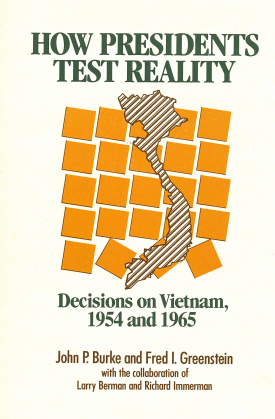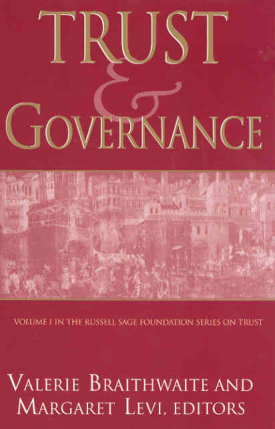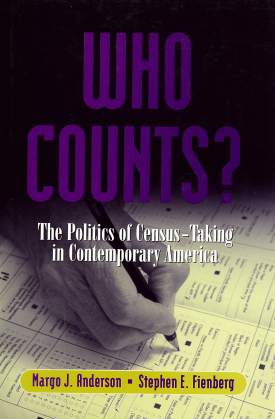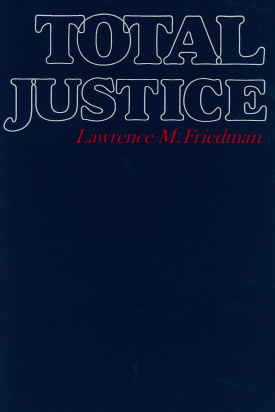
How Presidents Test Reality
About This Book
Just as famines and plagues can provide opportunities for medical research, the unhappy course of United States relations with Vietnam is a prime source of evidence for students of American political institutions. How Presidents Test Reality draws on the record of American decision making about Vietnam to explore the capacity of top government executives and their advisers to engage in effective reality testing.
Authors Burke and Greenstein compare the Vietnam decisions of two presidents whose leadership styles and advisory systems diverged as sharply as any in the modern presidency. Faced with a common challenge—an incipient Communist take-over of Vietnam—presidents Eisenhower and Johnson engaged in intense debates with their aides and associates, some of whom favored intervention and some of whom opposed it. In the Dien Bien Phu Crisis of 1954, Eisenhower decided not to enter the conflict; in 1965, when it became evident that the regime in South Vietnam could not hold out much longer, Johnson intervened.
How Presidents Test Reality uses declassified records and interviews with participants to assess the adequacy of each president’s use of advice and information. This important book advances our historical understanding of the American involvement in Vietnam and illuminates the preconditions of effective presidential leadership in the modern world.
"An exceptionally thoughtful exercise in what ‘contemporary history’ ought to be. Illuminates the past in a way that suggests how we might deal with the present and the future." —John Lewis Gaddis
"Burke and Greenstein have written what amounts to an owner's manual for operating the National Security Council....This is a book Reagan's people could have used and George Bush ought to read." —Bob Schieffer, The Washington Monthly
JOHN P. BURKE is associate professor of political science at the University of Vermont.
FRED I. GREENSTEIN is professor of politics at Princeton University and director of the Program in Leadership Studies at the Woodrow Wilson School of Public and International Affairs.
Download
RSF Journal
View Book Series
Sign Up For Our Mailing List
Apply For Funding

Trust and Governance
About This Book
An effective democratic society depends on the confidence citizens place in their government. Payment of taxes, acceptance of legislative and judicial decisions, compliance with social service programs, and support of military objectives are but some examples of the need for public cooperation with state demands. At the same time, voters expect their officials to behave ethically and responsibly. To those seeking to understand—and to improve—this mutual responsiveness, Trust and Governance provides a wide-ranging inquiry into the role of trust in civic life.
Trust and Governance asks several important questions: Is trust really essential to good governance, or are strong laws more important? What leads people either to trust or to distrust government, and what makes officials decide to be trustworthy? Can too much trust render the public vulnerable to government corruption, and if so what safeguards are necessary? In approaching these questions, the contributors draw upon an abundance of historical and current resources to offer a variety of perspectives on the role of trust in government. For some, trust between citizens and government is a rational compact based on a fair exchange of information and the public's ability to evaluate government performance. Levi and Daunton each examine how the establishment of clear goals and accountability procedures within government agencies facilitates greater public commitment, evidence that a strong government can itself be a source of trust. Conversely, Jennings and Peel offer two cases in which loss of citizen confidence resulted from the administration of seemingly unresponsive, punitive social service programs.
Other contributors to Trust and Governance view trust as a social bonding, wherein the public's emotional investment in government becomes more important than their ability to measure its performance. The sense of being trusted by voters can itself be a powerful incentive for elected officials to behave ethically, as Blackburn, Brennan, and Pettit each demonstrate. Other authors explore how a sense of communal identity and shared values make citizens more likely to eschew their own self-interest and favor the government as a source of collective good. Underlying many of these essays is the assumption that regulatory institutions are necessary to protect citizens from the worst effects of misplaced trust. Trust and Governance offers evidence that the jurisdictional level at which people and government interact—be it federal, state, or local—is fundamental to whether trust is rationally or socially based. Although social trust is more prevalent at the local level, both forms of trust may be essential to a healthy society.
Enriched by perspectives from political science, sociology, psychology, economics, history, and philosophy, Trust and Governance opens a new dialogue on the role of trust in the vital relationship between citizenry and government.
VALERIE BRAITHWAITE is associate director of the Research School of Social Sciences at the Australian National University, Canberra, Australia. She is also coordinator of the Trust Strand of the Reshaping Australian Institutions Project in the Research School of Social Sciences.
MARGARET LEVI is professor of political science and Harry Bridges Chair in Labor Studies, University of Washington, Seattle. She is also director of the University of Washington Center for Labor Studies.
CONTRIBUTORS: William T. Bianco, Simon Blackburn, John Braithwaite, Geofrrey Brennan, Martin Daunton, Russell Hardin, M. Kent Jennings, Mark Peel, Philip Pettit, John T. Scholz, Tom R. Tyler, Susan H. Whiting.
A Volume in the Russell Sage Foundation's Series on Trust
RSF Journal
View Book Series
Sign Up For Our Mailing List
Apply For Funding

Who Counts?
About This Book
One of Choice Magazine's Outstanding Academic Books of 2000
For those interested in understanding the historical and scientific context of the census adjustment controversy, Who Counts? is absolutely essential reading. —Science
Ever since the founding fathers authorized a national headcount as the means of apportioning seats in the federal legislature, the decennial census has been a political battleground. Political power, and more recently the allocation of federal resources, depend directly upon who is counted and who is left out. Who Counts? is the story of the lawsuits, congressional hearings, and bureaucratic intrigues surrounding the 1990 census. These controversies formed largely around a single vexing question: should the method of conducting the census be modified in order to rectify the demonstrated undercount of poor urban minorities? But they also stemmed from a more general debate about the methods required to count an ever more diverse and mobile population of over two hundred million. The responses to these questions repeatedly pitted the innovations of statisticians and demographers against objections that their attempts to alter traditional methods may be flawed and even unconstitutional.
Who Counts? offers a detailed review of the preparation, implementation, and aftermath of the last three censuses. It recounts the growing criticisms of innaccuracy and undercounting, and the work to develop new enumeration strategies. The party shifts that followed national elections played an increasingly important role in the politization of the census, as the Department of Commerce asserted growing authority over the scientific endeavors of the Census Bureau. At the same time, each decade saw more city and state governments and private groups bringing suit to challenge census methodology and results. Who Counts? tracks the legal course that began in 1988, when a coalition led by New York City first sued to institute new statistical procedures in response to an alleged undercount of urban inhabitants. The challenge of accurately classifying an increasingly mixed population further threatens the legitimacy of the census, and Who Counts? investigates the difficulties of gaining unambiguous measurements of race and ethnicity, and the proposal that the race question be eliminated in favor of ethnic origin. Who Counts? concludes with a discussion of the proposed census design for 2000, as well as the implications of population counts on the composition and size of Congress. This volume reveals in extraordinary detail the interplay of law, politics, and science that propel the ongoing census debate, a debate whose outcome will have a tremendous impact on the distribution of political power and economic resources among the nation's communities.
MARGO J. ANDERSON is professor of history and urban studies at the University of Wisconsin–Madison.
STEPHEN E. FIENBERG is Maurice Falk University Professor of Statistics and Social Change at Carnegie Mellon University.
A Volume in the RSF Census Series
RSF Journal
View Book Series
Sign Up For Our Mailing List
Apply For Funding

Total Justice
About This Book
It is a widely held belief today that there are too many lawsuits, too many lawyers, too much law. As readers of this engaging and provocative essay will discover, the evidence for a "litigation explosion" is actually quite ambiguous. But the American legal profession has become extremely large, and it seems clear that the scope and reach of legal process have indeed increased greatly.
How can we best understand these changes? Lawrence Friedman focuses on transformations in American legal culture—that is, people's beliefs and expectations with regard to law. In the early nineteenth century, people were accustomed to facing sudden disasters (disease, accidents, joblessness) without the protection of social and private insurance. The uncertainty of life and the unavailability of compensation for loss were mirrored in a culture of low legal expectations.
Medical, technical, and social developments during our own century have created a very different set of expectations about life, again reflected in our legal culture. Friedman argues that we are moving toward a general expectation of total justice, of recompense for all injuries and losses that are not the victim's fault. And the expansion of legal rights and protections in turn creates fresh expectations, a cycle of demand and response.
This timely and important book articulates clearly, and in nontechnical language, the recent changes that many have sensed in the American legal system but that few have discussed in so powerful and sensible a way.
Total Justice is the third of five special volumes commissioned by the Russell Sage Foundation to mark its seventy-fifth anniversary.
LAWRENCE M. FRIEDMAN is Marion Rice Kirkwood Professor of Law at Stanford University.
Download
RSF Journal
View Book Series
Sign Up For Our Mailing List
Apply For Funding
Pagination
- Previous page
- Page 14
- Next page
